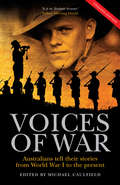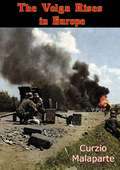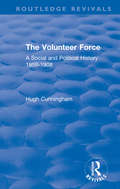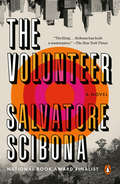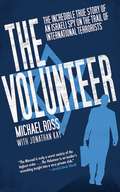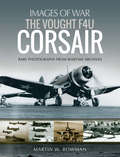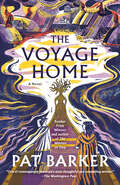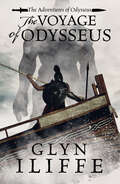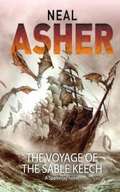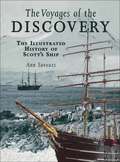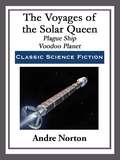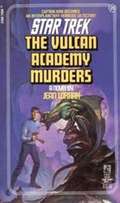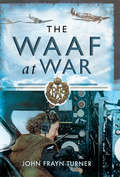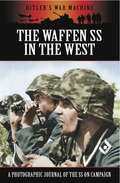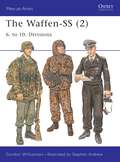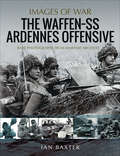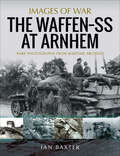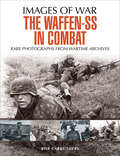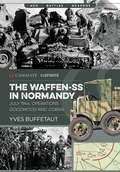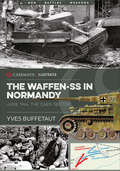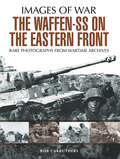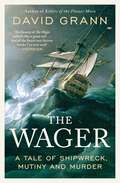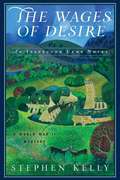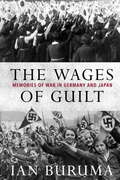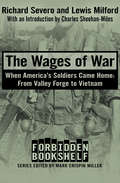- Table View
- List View
The Voices of War: Australians Tell Their Stories From World War I to the Present
by Michael CaulfieldDrawn from engagements ranging from World War I through to operations in East Timor and Iraq, these stories are taken from the Australians at War Film Archive, a collection of the memories of more than 2000 Australians who have served, both on the front line and at home. Some are unbelievably, unbearably tragic, even after sixty or seventy years; others are the golden memories of happy, albeit unusual, times. And, more often than not, they are stories that have never been shared with others, even family members. There are stories from winners of the Victoria Cross; from the POW camps of Asia and Europe; from the patrols of Vietnam, through to those who served as peacekeepers in Rwanda and Somalia. There are stories from nurses, from those who have volunteered to serve with aid agencies and stories of ordinary Australians caught up by circumstances and by duty, in wartime. These are their words.
The Volga Rises In Europe
by David Moore Curzio MalaparteImprinted on the ice, stamped on the transparent crystal beneath the soles of my shoes, I saw a row of exquisitely beautiful human faces: a row of diaphanous masks, like Byzantine icons. They were looking at me, gazing at me...the delicate, living shadows of men who had been swallowed up in the mysterious waters of the lake.DURING THE SUMMER OF 1941, the Italian journalist and novelist Curzio Malaparte was the only frontline war correspondent in the whole of Russia. His account of events there is not unique for this reason alone: his astonishing eye for detail and intimate knowledge of the country lends his record a depth of understanding rarely found in other war reporting, and his attention to the human dimension of the conflict reveals him as a man of great humanity and compassion.Expelled from the southern war zone on the orders of Goebbels in September 1941, Malaparte spent four months under house arrest before being sent to cover events in Finland. From here he reported the Siege of Leningrad--one of the seminal events played out on the Eastern Front.
The Volunteer Force: A Social and Political History 1859-1908 (Routledge Revivals)
by Hugh CunninghamOriginally published in 1975, The Volunteer Force is a study of the part-time military force which came into being to meet the mid-nineteenth century fear of French invasion. It survived and grew for fifty years until in 1908 it was renamed and remodelled as the Territorial Force. Composed initially of middle-class and often middle-aged gentlemen who elected their own officers and paid for their own equipment, the Volunteer Force soon became youthful and working-class, with appointed middle-class officers, a Government subsidy, and a minor military role as an adjunct to the Regular Army. This book examines the origins of the Force, the transformation in its social composition, the difficulties in finding officers who were ‘gentlemen’, the ambiguous status, of the Force both in the local community and in the Regular Army, and the political influence which the Force exerted in the early twentieth century. Above all it is concerned with the reasons for and the implications of enrolment; publicists argued that the Force was the embodiment of patriotism, and an indication of working-class loyalty to established institutions.
The Volunteer: A Novel
by Salvatore Scibona"His sentences are perfect but not merely; a surplus of dark and tender wisdom, who knows its source, makes his language--and the world--glow with meaning." -- Rachel Kushner, author of The Mars RoomA long-awaited new novel from a National Book Award Finalist, the epic story of a restless young man who is captured during the Vietnam War and pressed into service for a clandestine branch of the United States government A small boy speaking an unknown language is abandoned by his father at an international airport, with only the clothes on his back and a handful of money jammed in the pocket of his coat. So begins The Volunteer. But in order to understand this heartbreaking and indefensible decision, the story must return to the moment, decades earlier, when a young man named Vollie Frade, almost on a whim, enlists in the United States Marine Corps to fight in Vietnam. Breaking definitively from his rural Iowan parents, Vollie puts in motion an unimaginable chain of events, which sees him go to work for insidious people with intentions he cannot yet grasp. From the Cambodian jungle, to a flophouse in Queens, to a commune in New Mexico, Vollie's path traces a secret history of life on the margins of America, culminating with an inevitable and terrible reckoning.With intense feeling, uncommon erudition, and bracing style, Scibona offers at once a pensive exploration of how we are capable of both inventing and discovering our true families and a lacerating interrogation of institutional power at its most commanding and terrifying. An odyssey of loss and salvation ranging across four generations of fathers and sons, The Volunteer is a triumph in the grandest traditions of American storytelling.
The Volunteer: The Incredible True Story of an Israeli Spy on the Trail of International Terrorists
by Jonathan Kay Michael RossWhen Michael Ross decided to go backpacking across Europe, he had no inkling that his vacation would lead to a life tracking down the world's most dangerous terrorists. In Israel, out of money and alone, Ross began working on a Kibbutz-and fell in love with both the country and an Israeli woman. After converting to Judaism, Ross was recruited by the country's secret service-the Mossad-as an undercover agent. In the years that followed, he played a significant role in capturing al-Qaeda members responsible for the embassy bombings in Kenya and Tanzania, and worked jointly with the FBI and CIA to uncover a senior Hezbollah terrorist living in the United States. His never before revealed story makes an action-packed biography.
The Vought F4U Corsair (Images of War)
by Martin W. BowmanThis fully illustrated history of the iconic American fighter plane examines its development and combat experience through WWII and beyond. First flown in 1940, the Vought F4U Corsair was the fastest fighter in the world and the fastest US aircraft of any description. Powered by a huge 18-cylinder Pratt and Whitney Double Wasp engine, the first Corsairs were capable of speeds up to 417 miles per hour. This figure would rise to nearly 450mph in later versions. The F4U entered service with the US Navy in September 1942 and over time was extensively used by the US Marines, Royal Navy and Royal New Zealand Air Force. Famous squadrons that flew these planes—like VMF-214 'The Black Sheep' and VF-17 'Jolly Rogers'—maintained their superiority over the Japanese for the rest of the war. After the Second World War the Corsair was used with distinction by the French in Indo-China and again by the US Navy in Korea. Since then, Corsairs have remained a favorite among warbird enthusiasts the world over. This comprehensive book examines the engineering of the Corsairs alongside a detailed history of their development and usage in combat. Illustrated with scores of rare and previously unpublished photographs, Vought F4U Corsair is the perfect book for any fan of the 'bent wing bird'.
The Voyage Home: A Novel (The Women of Troy Series)
by Pat BarkerFrom the Booker Prize-winning author of The Regeneration Trilogy comes the powerful third installment to the Women of Troy series. • In The Voyage Home, Pat Barker skillfully reimagines Greek mythology, chronicling a perilous journey undertaken by the enslaved healer Ritsa and her cruel mistress Cassandra."One of contemporary literature's most thoughtful and compelling writers." —The Washington Post"Readers will relish this fierce feminist retelling.&” —Publishers WeeklyI never saw Cassandra as a victim. I saw a woman as focused on a single aim as any raptor stooping to its prey; but then, I had more opportunities to observe her ruthlessness than most. I was in her power, you see. I was her slave.Pat Barker has crafted the latest in a brilliant reimagining of Greek mythology, and The Voyage Home is the work of a writer at the height of her powers. In this third outing, she follows the young Ritsa and the unpredictable Cassandra on their perilous return journey to Mycenae. Cassandra has acquired the powers of prophecy from the kiss of Apollo, but the very same god has taken away the people&’s belief in her abilities. Though she warns of the carnage that awaits the Greek warrior king Agamemnon—who numbs himself with alcohol on the storm-plagued trip home—her shipmates disregard her.While Cassandra&’s prophecies fall on deaf ears, Ritsa instead remains focused on surviving once they make land. When a mysterious young girl begins to shadow them, and Agamemnon&’s cruelty takes a new turn, Ritsa must find a safe place for Cassandra, whose mood alternates between cruelty and frenzy. But it&’s the ongoing ire between Queen Clytemnestra and Agamemnon that could prove fatal for everyone.In The Voyage Home, Barker elevates myth and legend and asks us to examine the stories we hold dear through a feminist lens, and in doing so she has crafted a tale that upholds her legacy as one of our finest contemporary novelists.
The Voyage of Odysseus (The Adventures of Odysseus #Vol. 5)
by Glyn IliffeWith the Trojan War over, Odysseus heads home, and the real challenge now begins in this historical adventure by the author of The Oracles of Troy. The armies of Troy have been defeated, and the city lies in ruins. His oath fulfilled, Odysseus can at last sail for Ithaca and the long-awaited reunion with his family. But the gods, who were once his allies, have turned against him. Exiled with the warrior Eperitus, he is thrust into a world of seductive demi-gods and man-eating monsters. As they struggle from one supernatural encounter to another, never knowing what the next landfall will bring, their chances of ever returning home grow fainter. Tensions reach breaking point between Odysseus and his crew. Even the faithful Eperitus&’s loyalties are divided. Eventually only one hope remains. For Odysseus to see his wife and son again, he must tread the paths of the dead and descend into the pits of Hell itself . . . Praise for The Voyage of Odysseus:&“From one adventure to another the pace never lets up. Like Homer&’s original, Glyn Iliffe&’s series is destined to become a classic!&” —Steven McKay, author of the Warrior Druid of Britain series
The Voyage of the Sable Keech (Spatterjay)
by Neal AsherSable Keech is a walking dead man, and the only one to have been resurrected by nanochanger. Did he succeed because he was infected by the Spatterjay virus, or because he came late to resurrection in a tank of seawater? Tracing the man's last-known seaborne journey, Taylor Bloc wants to know the truth. He also wants so much else – adulation, power, control – and will go to any lengths to achieve them. An ancient hive mind, almost incomprehensible to the human race, has sent an agent to this uncertain world. Does it simply want to obtain the poison 'sprine' that is crucial to immortality – and, if so, maybe Janer must find it and stop it. Meanwhile, still faced with the ennui of immortality, Erlin has her solitude rudely interrupted by a very angry whelkus titanicus, and begins the strangest of journeys. Deep in the ocean the Spatterjay virus has wrought a terrible change that will affect them all. Something dormant for ten years is breaking free, and once again the aftershocks of an ancient war will focus on this watery world. And Sniper, for ten years the Warden of Spatterjay, finally takes delivery of his new drone shell. It's much better than his old one: powerful engines, more lethal weapons, thicker armour. He's going to need them.
The Voyages of the Discovery: The Illustrated History of Scott's Ship
by Ann SavoursDiscovery was built for Captain Scott's first Antarctic expedition of 1901-04 and was launched more than 100 years ago in 1901, at Dundee. She had a long and intriguing career before her final voyage back there in 1986; this book tells the story of that chequered history.Despite a number of expeditions to the Southern Ocean during the nineteenth century, the continent of Antarctica remained mostly a mystery by the turn of the twentieth. To remedy this the Royal Geographical Society proposed a National Antarctic Expedition, and a purpose-built vessel, the Discovery, was designed. Based on a whale ship, she was massively built to withstand ice, and was equipped with a hoisting propeller and rudder. Sh set sail from Cowes of 6 August and six months later was in the Ross Sea. The southern sledging expedition, of Scott, Shackleton and Wilson, reached within 500 miles of the South Pole.In 1905, a year after her return to Britain, she was purchased by the Hudson's Bay Company and worked as a simple cargo carrier between London and their trading posts in the Canadian Arctic. Later she was sent to rescue Shackleton's men on Elephant Island. In 1925 she became a research ship, and in 1929-31 she was used to survey what became Australian Antarctic territory. Moored on the Thames Embankment, she survived the London blitz before returning to Dundee where she is now on permanent display.
The Voyages of the Solar Queen
by Andre NortonThe Solar Queen is a trader ship crewed by Dane Thorson, Tau, and Captain Jellico. These are her voyages. 'The Plague Ship:' The Solar Queen and her crew have the trading rights to the wealthy planet Sargol, but to take advantage of them and see any return on their investment they must fight the Reptilian Gorp, negotiate with the cat-like Salariki, and find a cure for the sleeping sickness that has caused the Solar Queen to be called a plague ship and which has other ships looking to destroy them on sight. 'Voodoo Planet:' After a flyer crash, Dane Thorson, Tau, and Captain Jellico find themselves lost in a strange jungle. To make it back to the space port they will have to fight their way. Standing between them and civilization are alien animals and a powerful Voodoo priest who has plans for them.
The Vulcan Academy Murders (Star Trek: The Original Series #20)
by Jean LorrahA thrilling and suspenseful murder mystery set in the Star Trek: The Original Series.Captain Kirk and Doctor McCoy accompany Spock to the Vulcan Academy Hospital in search of an experimental treatment for a badly wounded Enterprise crew member. But with Spock&’s mother also a patient in the hospital, Kirk soon becomes involved in the complex drama of Spock&’s family. Suddenly, patients are dying, and Kirk suspects the unthinkable—murder on Vulcan! But can he convince the Vulcans that something as illogical as murder is possible? Until the killer is caught, everyone is in danger!
The WAAF at War
by John Frayn TurnerHighly experienced author John Frayn Turner has succeeded in capturing the indomitable spirit of the WAAF during WW2. His book vividly describes the many roles played by members of this highly respected organization, whether on the ground at air stations, under the ground in control bunkers, reading radar monitors or plotting the course of air operations.In addition the WAAF flew all types of aircraft, often with minimal training, regardless of weather.Most poignant are the hazardous exploits of those WAAF who volunteered for SOE. Perhaps the best known of these incredibly gallant girls is Noor Inayat-Khan GC who was executed at Dachau in 1944 but there were many others whose stories are told here.The WAAF at War is a long overdue tribute to the war winning contribution played by all its members.
The Waffen SS in the West: A Photographic Journal of the SS on Campaign (Hitler's War Machine)
by Bob CarruthersThis photographic journal was originally published in the spring of 1941. It was edited by and carried a forward by Hauptsturmfhrer Gunter d'Alquen, commander of the SS Propaganda Kompanie and editor of the official SS paper, Das Schwarze Korps.Many of the pictures taken in this book feature the men of Waffen SS Standarte "Germania". In 1940 the men who bore the word Germania on their cuff bands were fighting as a motorised regiment under the command of SS-Standartenfhrer Karl-Maria Demelhuber.This is a unique account of the Waffen SS on campaign in the west from a primary source, edited by, and with an introduction by Emmy award winning author Bob Carruthers.
The Waffen-SS
by Gordon Williamson Stephen AndrewThe military branch of the Nazi SS security organisation grew by the end of World War II (1939-1945) from a handful of poorly regarded infantry battalions in 1939, into a force of more than 30 divisions including units of every type. Their battlefield reputation varied widely, from the premier armoured divisions which formed Germany's utterly reliable spearheads on both main fronts, to low quality 'anti-partisan' units. The divisions covered in this second of four titles include the first mountain and cavalry units, and two of the remarkable new Panzer divisions raised in the great 1943 expansion. Illustrated with rare photographs from private collections, the text details their organisation, uniforms and insignia, and summarises their battle record.
The Waffen-SS Ardennes Offensive (Images of War)
by Ian BaxterIn late 1944 under extreme pressure on both the Eastern and Western fronts, Hitler realized he needed to force the Allies into negotiating a truce thereby saving Germany from total defeat. Using the Christmas period to enhance the vital element of surprise, he ordered a devastating attack through the rugged and mountainous Ardenne region with the key Allied port of Antwerp as the objective. This book, with its extensive text and rare and unpublished photographs with detailed captions, tells the story of the Waffen-SS offensive, known as Wacht am Rhein (Watch on the Rhine). These formidable SS armored units with supporting Wehrmacht divisions initially achieved dramatic success making full use of the harsh winter conditions and terrain. Gradually the Allies regained the upper hand on the attackers who were increasingly suffering from lack of reinforcements and resupplies. After defeat at the pivotal battle of Bastonge, remaining Waffen-SS units withdrew and were transferred back to the Eastern Front. As described in this classic Images of War book, the Fuhrer’s gamble so nearly paid off and the ruthless fighting spirit of the elite Waffen-SS divisions caused the Allied command serious concern.
The Waffen-SS at Arnhem (Images of War)
by Ian BaxterThis pictorial WWII history examines the brutal Battle of Arnhem with particular focus on the SS units that fought the Allied push into the Netherlands.The 1944 Arnhem airborne operation, immortalized by the film A Bridge Too Far, will forever be remembered as a great British feat of arms. British and Polish paratroopers displayed outstanding courage and tenacity in a desperate last stand situation. And yet, as this book describes, the plan was fatally flawed as the 9th and 10th SS Panzer Divisions were recuperating and concealed nearby. What followed was a bloody battle of attrition the result of which was arguably inevitable. Drawing on rare and unpublished photographs, this volume in the Images of War series reveals the historical combat record of the Hohenstaufen and Frundsberg divisions. It describes the intensity of the fighting in and around Arnhem between these elite SS and supporting units against a lightly armed yet equally determined enemy. In spite of the increasing certainty of German defeat, the SS soldier remained fanatically motivated. This superbly illustrated book with its well-researched text and full captions captures the drama of that historic battle for a bridge over the Rhine.
The Waffen-SS in Combat: Rare Photographs From Wartime Archives (Images of War)
by Bob Carruthers&“A photographic history of some of the most elite of Germany&’s armed forces as they fought on all fronts during World War II . . . Highly recommended.&”—Scale Military Modeller This is the photographic history of the Waffen-SS in combat on all fronts. The short six-year history of the Waffen-SS spanned triumph and disaster, and their story can be traced through these powerful images, which clearly document the reality of combat from 1940 to 1945. These rare images span the combat history of the Waffen-SS from the optimism of the opening phases of the war in the west through to the challenges of Barbarossa and the long and bloody retreat against a numerically far superior enemy in both the east and the west. The powerful photographic record is essential reading for anyone with an interest in the course of the war from the German perspective and clearly demonstrated the scale of the task undertaken by the Waffen-SS on all fronts. &“This collection of b&w historical photos from WWII showcases photos taken by the Germans for propaganda purposes and published in newspapers, magazines, and books between 1940 and 1945. Many of the photos come from the SS-Kriegsberichter-Kompanie (Waffen-SS War Reporters Company), led by Gunter d&’Alquen, which recorded actions of platoons. The photos are grouped in three sections on the activities of the Waffen-SS in the west in 1940, in the east in 1941-1943, and in combat and defeat 1943-1945. Each section begins with an introduction giving context on the origins of the photos and the photographers and crews involved. There is also background on the units, platoons, and divisions photographed.&”—ProtoView
The Waffen-SS in Normandy: July 1944, Operations Goodwood and Cobra (Casemate Illustrated #Cis0009)
by Yves BuffetautOne of the greatest paradoxes of the Battle of Normandy is that the German divisions found it much harder to reach the front line than the Allies, who had to cross the sea and then deploy in a cramped bridgehead until the American breakthrough of late July 1944. The Waffen-SS were no better off than the Heer units and German high command never quite got on top of operations, as the divisions were thrown into the melee one by one. During the month of June 1944, the Panzer divisions present succeeded in containing the Allies in a small bridgehead. In July, the arrival of more SS divisions should have finally allowed the Germans to counter-attack decisively. This was not the reality. The Allies had also strengthened in number and kept the blows coming, one after another. Each SS-Panzer division had a different experience of the fighting in July. This Casemate Illustrated looks at the divisions one by one throughout Operations Goodwood and Cobra which saw large tank battles and the collapse of the German front in Normandy. It includes over 100 photographs, alongside biographies of the commanders and color profiles of trucks and tanks which played a key role in operations as the Americans succeeded in breaking through the German line of defense.
The Waffen-SS in Normandy: June 1944, The Caen Sector (Casemate Illustrated #Cis0003)
by Yves BuffetautThe actions of Germany&’s armed SS force during D-Day in the series that&’s &“a welcome addition . . . targeted at the general World War II enthusiast&” (Globe at War). For many, the Waffen-SS soldier represents the archetype of the combatant, if not the warrior: well-armed, well-trained, possessing intelligence in combat, imbued with political and ideological fanaticism, he is an elite soldier par excellence, even if a lack of scruples casts a long shadow. However, is this picture true? In the case of the Battle of Normandy, opinions diverged, not only among today&’s historians, but also amongst the German generals at the time. In all, the Waffen-SS fielded six divisions during the Battle of Normandy, as well as two heavy battalions of Tiger tanks. But they were by no means a single homogenous entity, for with the exception of II SS-Panzerkorps, the divisions arrived at the front one after another and were immediately thrown into battle. This volume in the Casemate Illustrated series examines the Waffen-SS in Normandy during the fierce fighting of June 1944, when they struggled to hold back the Allied advance on Caen, though the picture was by no means one-sided. Extensively illustrated with photographs, tank profiles, and maps, and accompanied by biographies of key personnel and explanatory text boxes, this volume gives a clear and accessible account of events, challenging some popular perceptions along the way.
The Waffen-SS on the Eastern Front: A Photographic Record of the Waffen SS in the East (Images of War)
by Bob CarruthersA photographic history of the notorious Nazi fighting force during Operation Barbarossa—from the Emmy Award-winning historian and author. This is the illustrated history of the Waffen-SS—the armed political wing that grew out of the Schutzstaffel or Nazi party protection squads—on the Eastern Front. The life and death of the Waffen-SS can be traced in the surviving photographs, and the brooding saga of the decline from triumph into disaster is told through these powerful images which clearly document the reality of combat on the Russian Front.
The Wager: A Tale Of Shipwreck, Mutiny And Murder
by David GrannTHE SUNDAY TIMES NUMBER ONE BESTSELLER *LONGLISTED FOR THE 2023 BAILLIE GIFFORD PRIZE FOR NON-FICTION* 'The beauty of The Wager unfurls like a great sail... one of the finest nonfiction books I&’ve ever read' Guardian &‘The greatest sea story ever told&’ Spectator'I cannot think of anyone who would not love this book . . . It is an extraordinary true story, beautifully written' Richard Osman&‘A cracking yarn… Grann&’s taste for desperate predicaments finds its fullest expression here&’ ObserverFrom the international bestselling author of KILLERS OF THE FLOWER MOON and THE LOST CITY OF Z, a mesmerising story of shipwreck, mutiny and murder, culminating in a court martial that reveals a shocking truth. On 28th January 1742, a ramshackle vessel of patched-together wood and cloth washed up on the coast of Brazil. Inside were thirty emaciated men, barely alive, and they had an extraordinary tale to tell. They were survivors of His Majesty&’s ship the Wager, a British vessel that had left England in 1740 on a secret mission during an imperial war with Spain. While chasing a Spanish treasure-filled galleon, the Wager was wrecked on a desolate island off the coast of Patagonia. The crew, marooned for months and facing starvation, built the flimsy craft and sailed for more than a hundred days, traversing 2,500 miles of storm-wracked seas. They were greeted as heroes. Then, six months later, another, even more decrepit, craft landed on the coast of Chile. This boat contained just three castaways and they had a very different story to tell. The thirty sailors who landed in Brazil were not heroes – they were mutineers. The first group responded with counter-charges of their own, of a tyrannical and murderous captain and his henchmen. While stranded on the island the crew had fallen into anarchy, with warring factions fighting for dominion over the barren wilderness. As accusations of treachery and murder flew, the Admiralty convened a court martial to determine who was telling the truth. The stakes were life-and-death—for whomever the court found guilty could hang.
The Wages of Desire: A World War II Mystery (Inspector Lamb Ser.)
by Stephen KellyIn the late summer of 1941, as the war deepens, Detective Chief Inspector Thomas Lamb must risk his life to sort out the links between a series of killings—past and present—in a Hampshire village brimming with buried secrets. In the late summer of 1941, as the war in Europe drags on, long-buried secrets begin to surface in the Hampshire village of Winstead, when the body of a young woman – a former conscientious objector - is found shot to death in the church cemetery. The woman’s only connection to Winstead seems to be that she lately had joined a group of conscripted workers who are building a prisoner of war camp on an abandoned farm near the village. But Detective Chief Inspector Thomas Lamb, who is called in to solve the case, has his doubts. The mystery deepens when workers at the farm find the remains of a child in the foundation of the old farmhouse, and a tramp who had been squatting in the wood near the church turns up dead. Lamb soon begins to suspect that the crimes might be related to a tragic event that occurred in Winstead more than twenty years earlier – the suicide of a village woman who took her life in despair after her husband abandoned her and took their young twin sons with him. As Lamb pieces together the connections between the crimes, he draws closer to the source of evil in Winstead’s past and present and, in the end, must risk his own life to uncover the truth.
The Wages of Guilt
by Ian BurumaIn this now classic book, internationally famed journalist Ian Buruma examines how Germany and Japan have attempted to come to terms with their conduct during World War II--a war that they aggressively began and humiliatingly lost, and in the course of which they committed monstrous war crimes. As he travels through both countries, to Berlin and Tokyo, Hiroshima and Auschwitz, he encounters people who are remarkably honest in confronting the past and others who astonish by their evasions of responsibility, some who wish to forget the past and others who wish to use it as a warning against the resurgence of militarism. Buruma explores these contrasting responses to the war and the two countries' very different ways of memorializing its atrocities, as well as the ways in which political movements, government policies, literature, and art have been shaped by its shadow. Today, seventy years after the end of the war, he finds that while the Germans have for the most part coped with the darkest period of their history, the Japanese remain haunted by historical controversies that should have been resolved long ago. Sensitive yet unsparing, complex and unsettling, this is a profound study of how people face up to or deny terrible legacies of guilt and shame.
The Wages of War: When America's Soldiers Came Home: From Valley Forge to Vietnam (Forbidden Bookshelf #20)
by Richard Severo Lewis MilfordA disturbing chronicle of the US government&’s mistreatment of American soldiers and veterans throughout history, with a new introduction by Charles Sheehan-Miles Time and time again, the sacrifices made by veterans and their families have been repaid with scorn, discrimination, lack of health services, scant financial compensation, and other indignities. This injustice dates back as far as the American Revolution, when troops came home penniless and without prospects for work, yet had to wait decades before the government paid them the wages they were owed. When soldiers returned from the Cuban campaign after the Spanish-American War, they were riddled with malaria, typhoid, yellow fever, and dysentery—but the government refused to acknowledge their illnesses, and finally dumped them in a makeshift tent city on Long Island, where they were left to starve and die. Perhaps the most infamous case of disgraceful behavior toward veterans happened after the Vietnam War, when soldiers were forced to battle bureaucrats and lawyers, and suffer media slander, because they asked the government and chemical industry to help them cope with the toxic aftereffects of Agent Orange. In The Wages of War, authors Richard Severo and Lewis Milford not only uncover new information about the controversial use of this defoliant in Vietnam and the subsequent class action suit brought against its manufacturers, but also present fresh information on every war in US history. The result is exhaustive proof that—save for the treatment of soldiers in the aftermath of World War II—the government&’s behavior towards American servicemen has been more like that of &“a slippery insurance company than a policy rooted in the idea of justice and fair reward.&”
